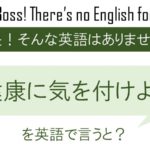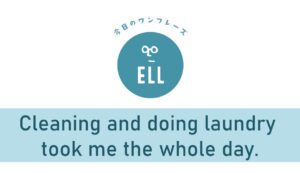
With fall right around the corner, many people are bringing horror movies back into their watch catalog and for many, one of the must watch of the season is John Carpenter’s Halloween (1978). This movie is a Halloween classic and has collected a large and devoted fan base. It has also gotten twelve sequels taking place in five different timelines. People love to reimagine the story of its protagonist Michael Myers, so it was no surprise that a remake of the original would happen somewhere along the line. This remake came in the form of Rob Zombie’s Halloween (2007) which has recently turned fifteen years old. Easily one of the most debated entries into the Michael Myers universe, people either really love or hate it. As a big fan of the franchise and of Rob Zombie, I personally love it and it’s easily my third favorite film in the catalog. I can understand, however, why the film is so divisive in the fan base.
Perhaps the bravest thing Rob Zombie did with his entry into the Halloween universe was he gave the protagonist a back story. Prior to Zombie’s version, the only image the public had of Michael as a human before he became a monster happened when he was a child on the night of the incident which kicks off the story. He said no words, had no back story, and we only got to see his face for a single shot. For many fans of the series, this point about the character is crucial as they believe humanizing Michael Myers in any way takes away from his mystery and horror. Zombie, however, devotes the entire first hour of his remake to the early life of Michael Myers before he turned into the shape. We get to see what his home life was like, what his personality was like, his likes and interests, and the things he cared about. Prior to Zombie’s films, the film had never cared about psychological perspectives either, but Zombie did a one-eighty on this narrative and made his film and characters deeply psychological in reasonings and motives. For fans of the original, who love the 1978 version based on the mystery and the unknown of Michael Myers, this take on the movie was a deal breaker. For others, this re-telling of the story offered extra layers to the characters we were all familiar with and this aspect of Zombie’s reimagining was one of the strongest selling points. Personally, I love both takes and appreciate both the universes for what they had to offer.
Another nitpick with a strong presence throughout the film was based on Michael Myer’s height. Such a small aspect about a movie may seem like a small and unimportant detail to the average viewer, but to the hardcore fans, it was a huge issue. The original actor for Michael Myers, Nick Castle, was only 178 centimeters tall. This was a pretty average height for the shape and people appreciated that behind the mask, he could look like any other man. In Rob Zombie’s version, however, the actor that plays Michael Myers, Tyler Mane, is a full 208 centimeters tall! This made the shape freakishly tall and intimidating. With his very large height and bulky shape, every shot Tyler is in is dominated by this large imposing man who towers over the other actors. This makes Michael extra scary for some, as his build is much more intimidating than that of Nick, but the crowd who love Michael and his mystery argue that this, once again, takes away from the mystique of the character. In their opinion, Michael was much more intimidating when he looked like he could be any average man. Intentionally making Michael this big, they believe, was unrealistic and a tactic that relied more on visuals instead of acting to make Michael appear scarier. Having the idea that Michael could be and look like any other man, they argue, was much more unsettling than having him look like someone that was internationally built to be a monster. Again, I love them both and appreciate Nick for the aura he creates in every scene with just his acting, but I also love Tyler’s take which he also acted well (despite it being difficult to notice as you’re distracted by his size) and which I believe complimented the psychological aspects of the film. The difference, however, is so divisive, that the height of the actor is often listed in discussions where people are talking about why they liked or disliked the film.
These aspects of the film are amongst the most discussed topics amongst fans (along with Rob Zombie’s signature uptick of graphic horror), but apart from that, the film progresses into an almost identical re-telling after the first half. Personally, I am a big fan of both the Halloween series and of Rob Zombie, so I quite enjoy his remake and I like to rewatch it often. However, I can also understand the feelings of the people who do not like the remake as they believe it messed with some of their favorite aspects of the 1978 film. The good thing about the Halloween series, however, is that there are five different timelines you can follow like a ‘choose your own adventure’ and you don’t have to like every timeline. The series is not one long continuity where all the films depend on each other to make sense and, if you do not like the remake, you can choose to not watch it or the timeline it created. It will not affect the timeline you like. Nothing will ever be as good as the 1978 original, but in my opinion Zombie’s movie is still a fun and interesting watch.
Dolores
Vocabulary
divisive (adjective) – tending to cause disagreement among people because they have opposing thoughts or opinions on a topic
protagonist (noun) – a leading character in a story
do a one eighty (idiom) – to change your opinion to the complete opposite of what it was
nitpick (noun): a minor flaw
英語学習をフルサポート!
マンツーマン&コーチングの英会話教室























